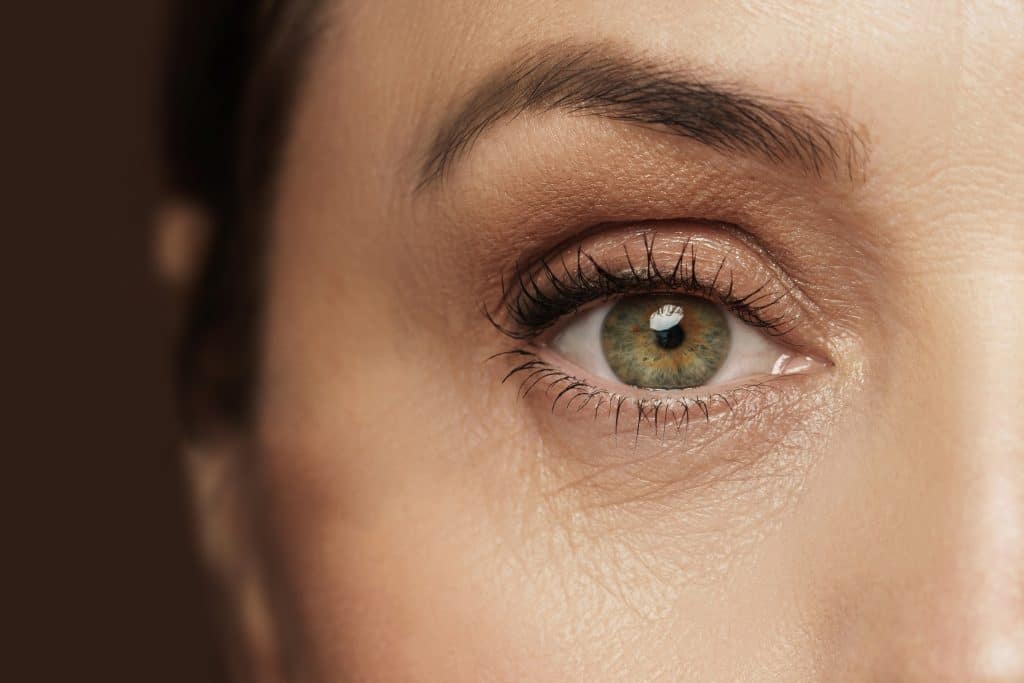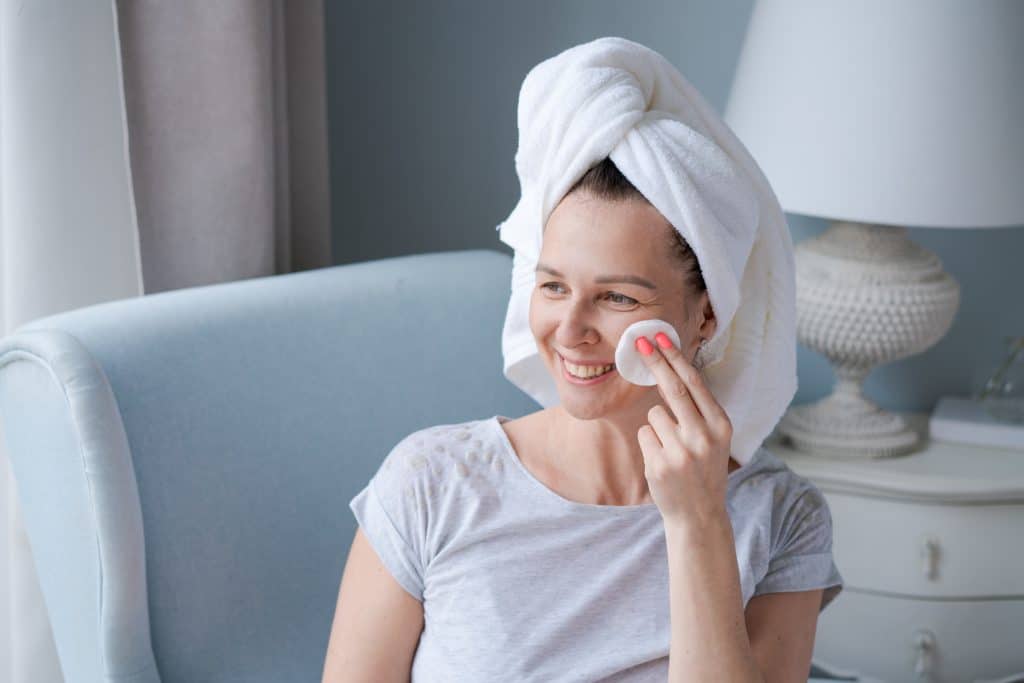Discover the secret to radiant, glowing skin by focusing on one crucial element: hydration. Often overlooked, skin hydration is vital for maintaining a youthful appearance and overall skin health. This article serves as a comprehensive guide to keeping your skin hydrated, from understanding the science behind it to actionable tips and long-term strategies. Whether you’re battling dry skin or simply looking to enhance your skincare routine, you’ll find valuable insights here. So, let’s embark on this journey to achieve skin so hydrated it practically glows!
Contents
- The Fundamentals Of Skin Hydration
- Common Culprits Of Skin Dehydration
- The Role Of Diet In Skin Hydration
- Skincare Routine For Hydrated Skin
- Hydrating Treatments And Masks
- On-The-Go Hydration Tips
- Long-Term Strategies For Skin Hydration
- Seasonal Adjustments For Skin Hydration
- The Importance Of Professional Advice
- Begin Your Journey To Luminous, Hydrated Skin!
- Related
The Fundamentals Of Skin Hydration

Skin hydration is more than just a beauty buzzword; it’s a cornerstone of healthy skin. Hydrated skin is characterized by its water content, which helps maintain elasticity, softness, and radiance. When your skin is well-hydrated, it functions better, serving as a robust barrier against environmental pollutants and irritants.
Dehydration, however, can lead to a host of skin issues, including dryness, flakiness, and increased sensitivity. It can also exacerbate the appearance of fine lines and wrinkles. Knowing how crucial water content is to your skin’s health sets the stage for understanding how to maintain it effectively.
Common Culprits Of Skin Dehydration

Environmental factors like sun exposure, wind, and pollution can be harsh on your skin, stripping it of its natural moisture. Even indoor environments with low humidity can lead to dry, dehydrated skin. These external elements are often unavoidable, but knowing their impact is the first step in combating their effects.
Lifestyle choices also play a significant role in skin dehydration. Poor diet, high-stress levels, and inadequate sleep can all contribute to reduced skin hydration. Even some skincare products, particularly those containing alcohol or harsh chemicals, can deplete your skin’s moisture levels. Awareness of these factors allows you to make informed decisions in your quest for hydrated skin.
The Role Of Diet In Skin Hydration

You are what you eat, and this couldn’t be truer when it comes to your skin. A diet rich in hydrating foods like fruits and vegetables can significantly improve your skin’s water content. Foods such as watermelon, cucumber, and oranges are not only delicious but also packed with water and essential nutrients that contribute to skin hydration.
On the flip side, certain foods can work against you. Consuming too much salt or spicy foods can dehydrate your skin, making it look dull and lifeless. Cutting back on these and incorporating more hydrating foods into your diet can make a noticeable difference in your skin’s appearance and texture.
Skincare Routine For Hydrated Skin

A consistent skincare routine is your first line of defense in maintaining hydrated, healthy skin. The three fundamental steps—cleansing, toning, and moisturizing—should be non-negotiables in your daily regimen. Opt for a gentle cleanser that removes impurities without stripping your skin of its natural oils. Follow this with a hydrating toner to balance the skin’s pH and prepare it for moisturizing.
When it comes to moisturizers, the options are endless, but the goal is the same: lock in moisture. Look for products that contain hyaluronic acid, glycerin, or ceramides. These ingredients not only hydrate but also help to retain moisture, ensuring your skin stays supple and radiant throughout the day.
Hydrating Treatments And Masks

Sometimes, your skin needs an extra boost of hydration, and that’s where treatments and masks come in. Hydrating sheet masks, overnight masks, and serums can provide intense moisture and nutrients to your skin. These treatments are especially beneficial during extreme weather conditions or when your skin is feeling particularly parched.
Don’t underestimate the power of a good DIY mask, either. Ingredients like avocado, honey, and yogurt can be mixed to create hydrating masks right in your kitchen. The key is to use these treatments consistently but not excessively—once or twice a week should suffice for noticeable results.
On-The-Go Hydration Tips

Life gets busy, and sometimes, maintaining a full skincare routine while on the move can be challenging. Portable hydrating sprays can be a lifesaver in such situations. A quick spritz can instantly refresh and hydrate your skin. These sprays are convenient to carry and can also be used over makeup.
Sunscreen is another on-the-go essential. Not only does it protect against harmful UV rays, but it also prevents the sun from drying out your skin. Consider keeping a mini skincare kit in your bag, complete with a hydrating spray, sunscreen, and a small moisturizer. This ensures you’re never caught off guard when it comes to keeping your skin hydrated.
Long-Term Strategies For Skin Hydration

Consistency is key when it comes to maintaining hydrated skin. Regular exercise, for instance, improves blood circulation, which in turn helps to keep your skin hydrated. Exercise also increases the production of natural oils, giving your skin a healthy, radiant glow.
Indoor air quality can also affect your skin’s hydration levels. Using a humidifier, especially during winter when indoor air tends to be dry, can help maintain your skin’s moisture. Additionally, consider routine skin check-ups with a dermatologist. These visits can provide personalized advice and treatments to keep your skin at its hydrated best.
Seasonal Adjustments For Skin Hydration

As the seasons change, so do your skin’s hydration needs. During the summer, increased sweating and exposure to air conditioning can dehydrate your skin. On the other hand, winter brings its own set of challenges, including dry indoor heat and harsh winds. Adapting your skincare routine to suit the season is crucial. For instance, lighter, water-based moisturizers work well in the summer, while richer, oil-based creams are more suitable for winter.
In addition to seasonal skincare products, consider other adjustments, like changing your shower temperature or using a different cleanser. For example, hot showers in winter might feel good but can strip your skin of essential oils. Opt for lukewarm water and a hydrating cleanser to keep your skin in top condition year-round.
The Importance Of Professional Advice

While home remedies and over-the-counter products can be effective, sometimes professional help is needed to address specific skin concerns. Dermatologists and skincare experts can provide personalized advice tailored to your skin type and needs. Treatments like hydrating facials or even medical procedures can offer more long-lasting results.
Consulting a professional is particularly important if you have persistent skin issues like extreme dryness, eczema, or other skin conditions that affect hydration. They can prescribe specialized treatments or medications that can significantly improve your skin’s hydration levels, ensuring that you’re not just treating symptoms but addressing the root cause.
Begin Your Journey To Luminous, Hydrated Skin!
Armed with actionable tips and long-term strategies, the path to achieving deeply hydrated, glowing skin is well within your reach. No more excuses for dry, dull skin. Start by incorporating these hydration-focused practices into your daily and seasonal routines. Whether it’s tweaking your diet or consulting a dermatologist for specialized advice, each step you take brings you closer to your skin’s fullest potential. So don’t wait! Your journey to luminous, hydrated skin starts now!


